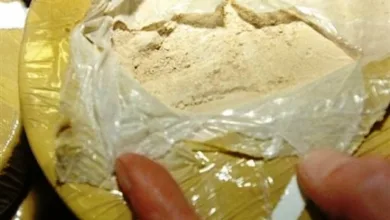Shimao’s losses spike 90% as embattled developer is gripped by China’s property downturn

Losses at Shimao Group Holdings, the embattled mainland Chinese developer, jumped nearly 90 per cent in the first half as the nation’s property market shows no sign of stabilising.
Amid the turmoil, the company announced the departure of its chairman, with his son taking over the reins.
Shanghai-based Shimao recorded a loss of 22.7 billion yuan (US$3.2 billion) for the six months to June, compared with 12 billion yuan a year earlier, according to the interim results filed to the Hong Kong stock exchange on Thursday. Revenue fell 3.9 per cent to 29.2 billion yuan in the same period.
“In the first half of 2024, the property market in China continued to undergo adjustments, and there was no sign of rebound from weak sales in commercial properties,” according to the filing.
Against such a bleak backdrop, the company’s contracted sales for the first half stood at 17.09 billion yuan and contracted gross floor area amounted to 1.31 million square metre. The company did not provide comparable figures for the year-earlier period.
The company said it would not pay an interim dividend.
Shimao said that its chairman and executive director Hui Wing-mau is retiring on September 1, with his son Jason Hui Sai-tan taking over as chairman on the same date.
The younger Hui, 47, joined the group in March 2000. He is currently the vice-chairman and president.
The widening losses come after the Hong Kong High Court adjourned a winding up petition against Shimao to December 16, allowing the company more time to work with creditors on a revised restructuring proposal to repay HK$1.58 billion (US$202.3 million) of borrowings.
The developer had outstanding borrowings of 256.6 billion yuan as of June 30, according to the filing. The company’s loans, bonds and other debt that are due for repayment within the next 12 months total 153.3 billion yuan, while its cash amounted to only 18.7 billion yuan.
China’s property sector has been beset by woes since 2020, when the government introduced the “three red lines” policy to restrict developers’ borrowing binge.
Despite Beijing’s announcement in May of a historic 300-billion-yuan fund for buying housing inventories and reviving the sector, the slow progress in the implementation of the scheme has failed to lift home sales.
Transacted sales generated by the top 100 Chinese developers shrank 39.5 per cent to 1.85 trillion yuan in the first half, according to China Real Estate Information Corporation (CRIC). In July, sales fell 36.4 per cent month on month to 279 billion yuan, CRIC data showed.
Land purchases by mainland China’s 100 largest developers declined by 38 per cent in the year’s first seven months to 430.7 billion yuan, compared with the same period last year. The rate of decline rose by 2.2 percentage points compared with the first six months of the year, according to a report by the China Index Academy.
Additional reporting by Yulu Ao
Source link




